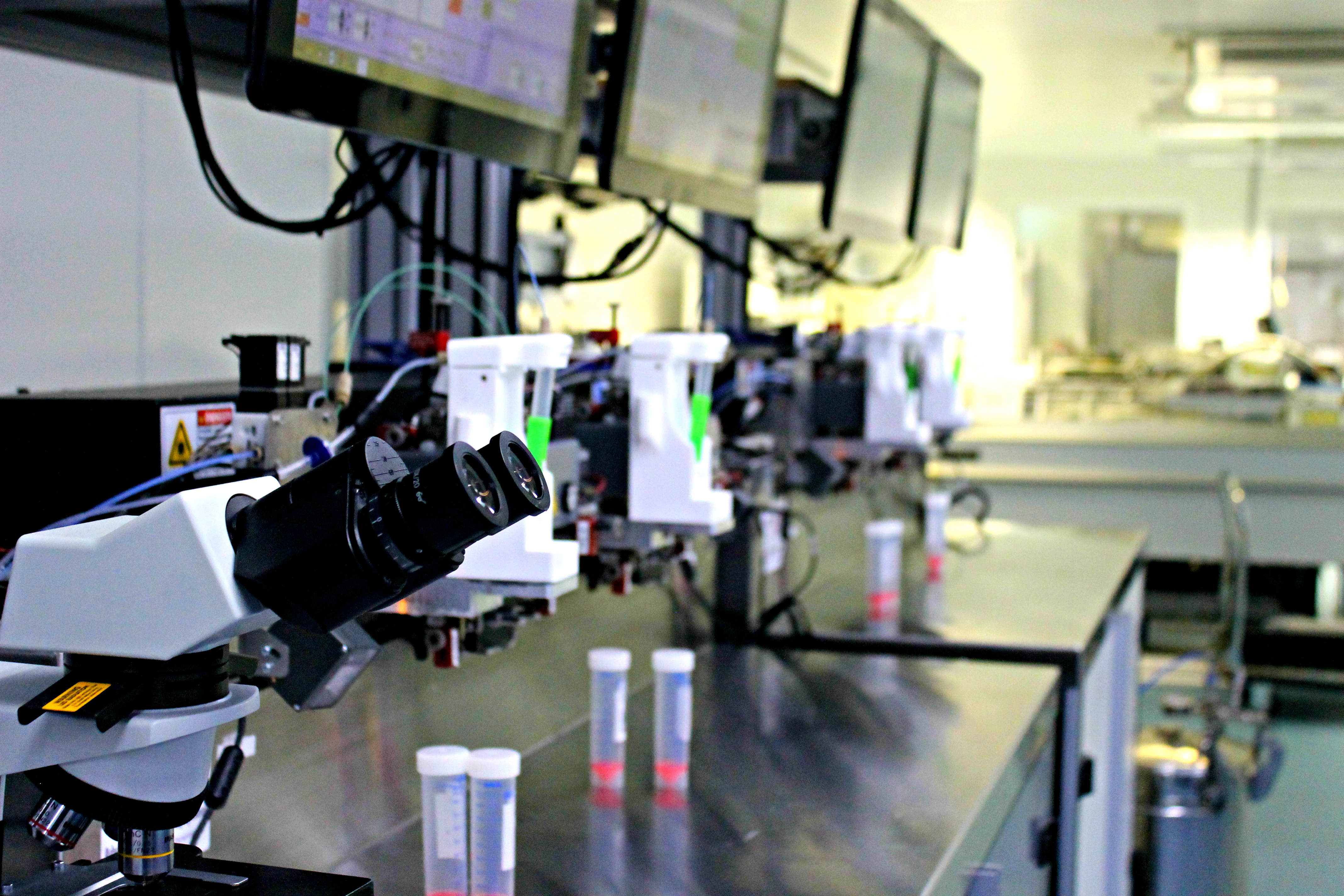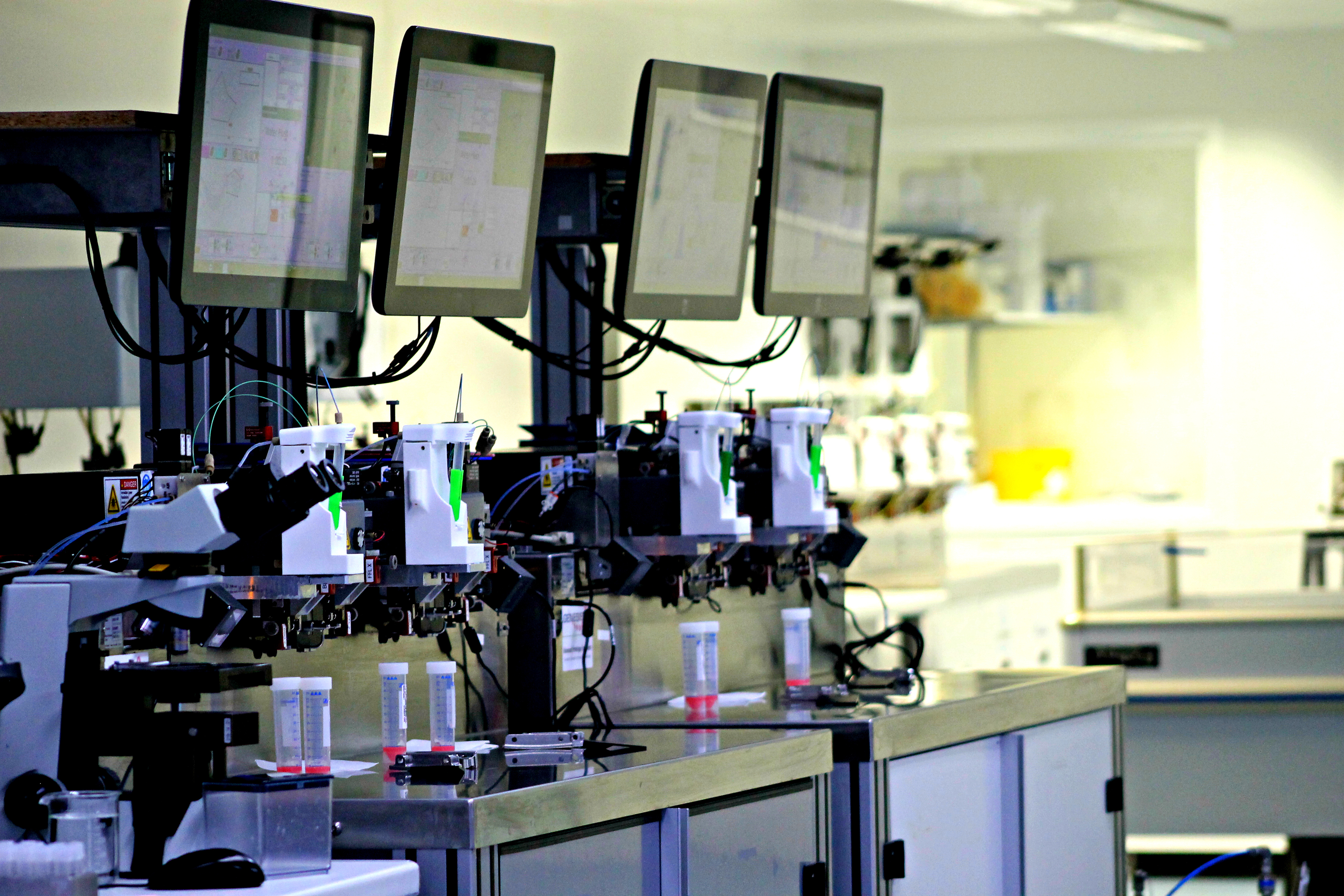Cogent was the first company in the world to market bovine sexed semen and has always kept a step ahead by heavy investment in research and development. This year, the most recent developments at the company have produced the greatest change yet.

Dairy producers of a certain age, and perhaps with long memories, will recall the early days of sexed semen in the UK. The technology had been promised for many years before it finally arrived, and when it eventually reached the commercial market, it did so thanks to the belief and heavy investment in semen sorting technology by key players in the Cogent team.
For Cogent was the first company in the world to put sexed semen on the commercial market and since that time in the late 1990s, has invested heavily in the R&D required to raise the product’s performance.
Today, the company is so committed to perfecting the sorting process that UK dairy producers now have the option of virtually eliminating the birth of low value dairy bull calves on their farms, and can do so without compromising genetic improvement in their herds’ milk-producing females.
But reaching this position – of having a portfolio of top grade bulls, achieving 90% female calves and conception rates which can be on a par with conventional semen – has not come without a heavy commitment, the latest of which came with the company’s link-up last year with ST Genetics.
ST Genetics, the owners and patent-holders of the technology which is used around the world for sorting semen by sex, became the majority shareholder in Cogent in October 2017. Since that time, staff at Cogent’s Cheshire headquarters have seen a sea-change in the sorting process and are shortly set to oversee a doubling in the quantity of sexed semen leaving the company stud.
At the sharp edge of this process is the company’s vet, Sarah Felstead, who not only takes responsibility for the health and welfare of the 150 bulls housed at Cogent’s Beachin Stud and its satellite units, but also oversees the whole supply chain and rubber-stamps the end product leaving the premises.
Describing her job as having been transformed since she became part of the ST Genetics family, she says: “I have seen nothing but change all the way through this year.”
Having worked for Cogent for the past eight years, she acknowledges: “Cogent were always ahead of the game but our speed of change has gathered pace since we became part of ST.
“The company has some incredibly talented people, some of whom have probably been there since the inception of the technology, and these people feed off each other in driving further change.
“The R&D department is very actively looking into different ways of driving efficiencies and product quality, and at Cogent, we probably take on board a processing advancement every two or three months,” she says.
Also describing the once-a-month video conferences held across all of ST Genetics’ 20-plus labs around the world, she says: “All the production directors and quality assurance directors take part and they provide processing updates and review everyone’s metrics, which helps us benchmark ourselves against other facilities.”
The team also schedules regular meetings in person and at other ST laboratories throughout the year to introduce new technology or processes as well as auditing each lab for individual performance.
The upshot of these developments is the best sexed semen product ever produced, containing twice the number of sperm of a traditionally sexed straw. Marketed as Sexed ULTRA 4M and shown in independent trials to achieve conception rates on a par with conventional semen, it is now available for the entire Cogent dairy catalogue, comprising well over 100 bulls, and includes every breed in the stud.
“There is really no comparison between the straws we produced when I started and the straws we sell today – the difference between 2M sold 10 years ago and SexedULTRA 4M is like night and day,” she says. “This is obvious from the improvements seen in the quality control testing. Rather than test the sperm’s motility at zero hours, we now assess the semen after it has been sitting in a straw-thawer for three hours, but we still apply the same motility cut-off point, which gives us an excellent measure of the robustness of the cells.”
Kris Tope, who has been part of the ST Genetics facility in Marysville, Ohio, for the past 12 years but has now moved to Cogent as laboratory manager, continues with this theme.
Highlighting the areas in which advancements in the lab have recently been made, he says they include computer hardware and software, the media in which the sperm cells are held throughout the process and in the final product, the number of cells in a straw and the quality control procedures.
Going forward he says: “The media suite is about to be upgraded again and this will make a whole stage of the process obsolete – it will lead to an increase in quality control levels and the quality of the final product.”
Looking around the lab, he highlights the different generations of machines and how with each new machine added carries technological improvements.
“Every machine is capable of having the regular software upgrades which has led to the improved sorting efficiencies necessary to provide the 4M product,” he says. “The machines we use today are so much more advanced, in the same way that modern cars are so much more sophisticated than the original models of the 1980s.”
With extra sorting heads to be added next month to those currently in operation, the lab’s capacity – with processing efficiencies factored in – will be doubled compared with this time last year.
The overall effect according to the Cogent team is a lot more job satisfaction feeding right through the system.
But at the end of the day it is the farmers who must reap the benefits and the cumulative efficiencies are having a profound effect of the performance and uptake of Cogent sexed semen.
Andrew Holliday, genetic product manager for Cogent says: “Every breed in our catalogue is now available as SexedULTRA 4M and that includes breeds which are specialised for grazing systems.
“This is a really important development as the grazing group more than anybody does not want bull calves, yet they must have high fertility and good conception rates to maintain their tight calving blocks,” he says.
The increasingly popular combination of sexed dairy semen alongside beef is lifting profits across more and more herds, while farmers of all types are using SexedULTRA 4M on cows as well as heifers, marking a step-change in the usage of sexed semen as farmer confidence grows.
With sires like the former number one £PLI Mr Rubi-Agronaut included in the Cogent stud, it is now clear that nothing will be unavailable as sexed semen to UK producers.
“The elite bulls right at the top will definitely be sexed and we have the technology to enable us to do this in sufficient quantity,” he says.
“It’s really rewarding to be part of this change but the most important benefit of all is that the UK farmer now has access to the best,” he says.
